UKY Study Abroad Delft - Dutch Scenarios 21
Dutch Scenarios – Kentucky Resilience, Scenario Planning and Infographic Design for architects, designers & planners is a case-studybased research & design program. Students from the University of Kentucky will take on the challenge to research global and national trends and ambitions related to create resilient conditions. By means of comparative analyses extreme scenarios for the future of Kentucky will be explored based on Dutch examples and variations. Kentucky will be the object of projection and testing through developing potential interventions. Current ambitions and trends involve actual conditions of the state as well as ambitions and trends, regional, national and global.
2021
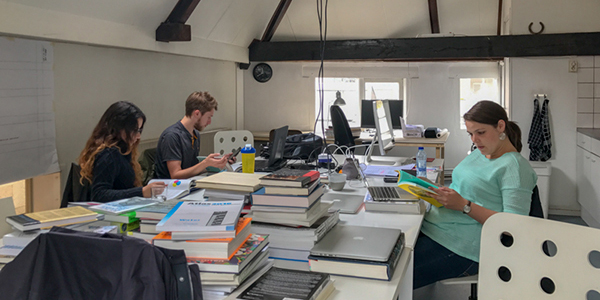
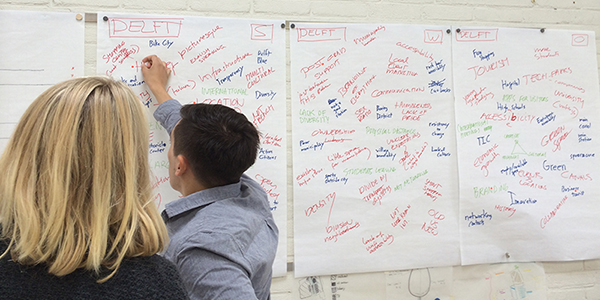
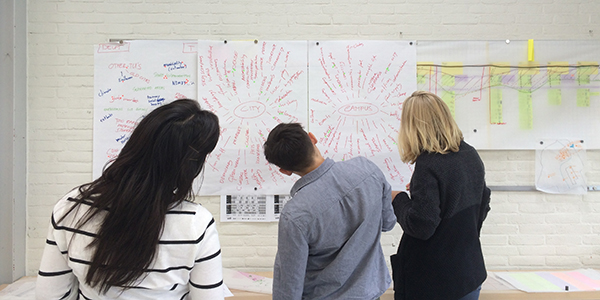
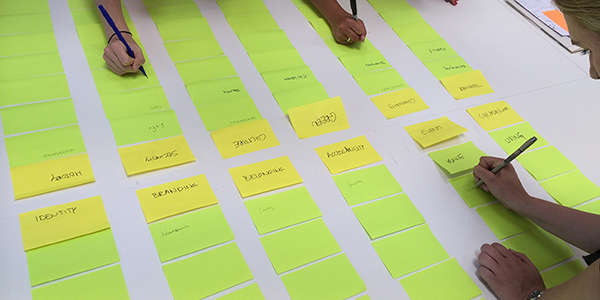
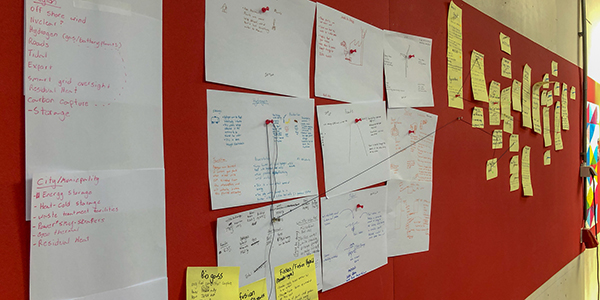
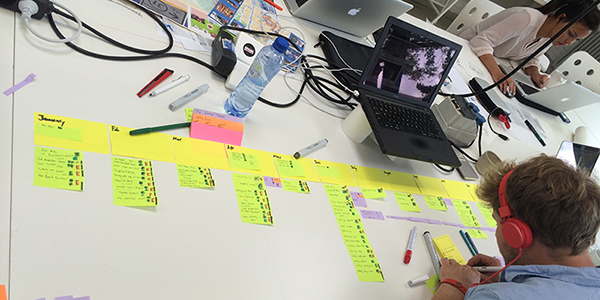
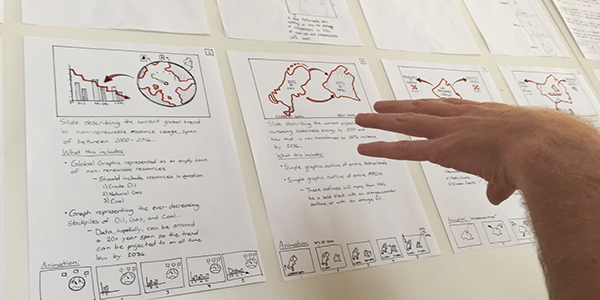
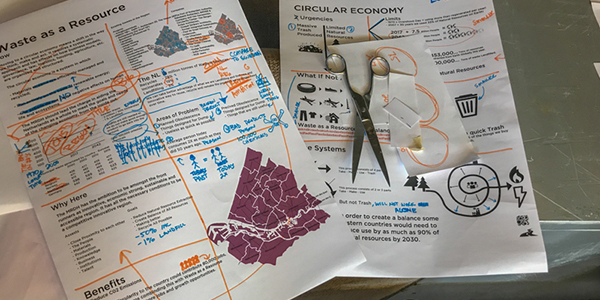
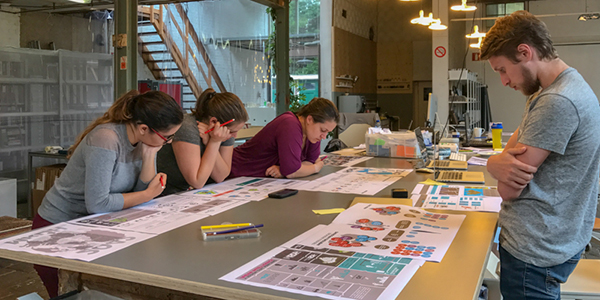
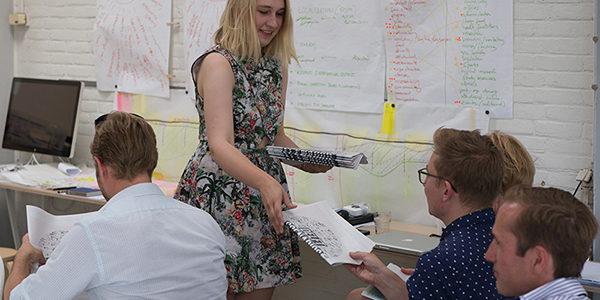
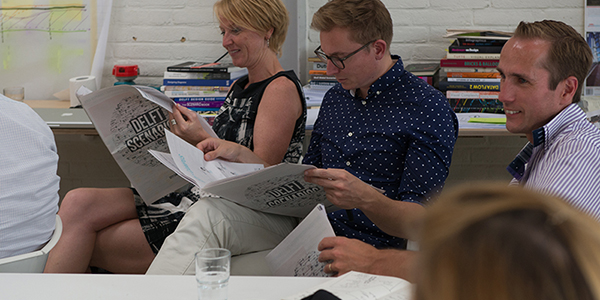
Cities and regions all over the world are reinventing their positions; either driven by changes in national policies decentralizing governance or reacting to the reality of competition and collaboration on subjects such as economy, services or the changing number of inhabitants. This often originates from a desire or perceived necessity to respond to the changing ambitions of industries and citizens, as well as to global influences.
Due to the complex and intricate nature of upcoming challenges, there’s a need to improve decision-making and policy processes just as much as there’s a need to service and renew spatial structures as demands are changing. One can state that changes in regional and urban developments are driven by changes in population and their needs. Energy and sustainability issues have become a common consciousness deserving appropriate response in terms of policy and spatial planning. One can easily add to these examples.
DESIGN THINKING
These current challenges are becoming more complex and interwoven. Fed by a large number of sometimes contradictory and definitely various ambitions they need to be addressed in a manner that justifies all involved. Changes are good. And by nature, changes are complex and difficult to implement. They are disruptive and evoke resistance. Change needs community, involvement and commitment. The more complex a challenge is, the more actors or stakeholders need to be involved, and the more inadequate traditional means to development becomes.
One needs to build robust solutions, or better, robust environments and contexts. Solutions tend to address current situations incapable of adjusting to changing realities. It is exactly those rapidly changing realities – economical, political and social – that have led to the realization that innovation in governance and policy- making processes is crucial for a city to keep operating successfully. Intelligent ways to address and implement developments are needed. Intelligent in terms of creating efficient and economically viable solutions for both processes and implementations; intelligent as in being informed by relevant parties. And the design practice in general is by nature the discipline to tackle complex challenges.
Scenarios are instruments to unveil potential solutions as well as possible hurdles. They assist by means of design proposals in debating the core issues. And they perform as excellent communication tools between various groups and disciplines.
STUDIO AND RESEARCH DESCRIPTION
Dutch Scenarios – Kentucky Resilience, Scenario Planning and Infographic Design for architects, designers & planners is a case-study based research & design program. Students from the University of Kentucky will take on the challenge to research global and national trends and ambitions related to create resilient conditions. By means of comparative analyses extreme scenarios for the future of Kentucky will be explored based on Dutch examples and variations. Kentucky will be the object of projection and testing through developing potential interventions. Current ambitions and trends involve actual conditions of the state as well as ambitions and trends, regional, national and global.
We will research the current condition of Kentucky in relation to the region and in comparison to the Netherlands. Main focus for the development of various scenarios is to enhance opportunities and ambitions and with a special interest to the built-environment.
Although the subject of research is realistic and based on actual ambitions and challenges the Dutch Scenarios studio will produce ‘academic’ results. It is not our aim to provide ‘ready-to-use’ solutions for either the state of Kentucky or other stakeholders. Our results need to be based on an open and suggestive approach and can be as extreme in terms of content and implementation conditions (financially / political / etc.) as the research and development of scenarios dictate. As much as the developed scenarios and proposed (spatial) implementations are grounded in actual conditions and political, economical or cultural ambitions they are meant to question and unveil exactly those premises.
SEMESTER TOPICS
- Inventory of complex assignments/issues (literature, stakeholder interviews, field trips, etc./ Trends & Ambitions)
- Analyses (SWOT, STEEPLE, Driving Forces, Critical Uncertainties
- Development of Extreme Scenarios (design of spatial interventions)
- Representation
The studio will be run as a design office. We will work as a team, producing results both individual and as a group. In principle we will work five days a week for an eight week period during which we will also host lectures and critics with relevant specialists.
- 8 weeks full-time; May 31 - July 23, 2021
- virtual program
- for undergraduate and graduate students of the University of Kentucky - College of Design
- 5 - 12+ participating students
- 10 ECT's (Studio 6, Elective 3, EA 1)
- Advertised Program Fee: USD 2,874 + EAP tuition
UKY EA Info & Sign up
Program Page UKY Education Abroad
tutors
Siebe Bakker - bureaubakker, NL
Dré Kampfraath - (info)graphic designer, NL
Frans Schupp - graphic designer, NL
experts and critics
various professionals from governmental agencies, design practices and knowledge institutes
Tentative Program
week 1; May 31 - June 4:
1-day workshop on design thinking (IDEO methodology…)
start inventory ‘Kentucky’ assignment (location / program / context: economical, spatial, social, etc.)
week 2; June 7 - June 11:
inventory + lectures /discussions
start analyses (inventory results – will drive further inventory)
week 3; June 14 - June 18:
‘finishing’ inventory / analyses / start scenarios
start design proposals (areas of interest)
week 4; June 21 - June 25:
review (inventory, analyses + start scenarios)
week 5; June 28 - July 2:
lectures /discussions
finishing analyses / scenario development / design proposals
week 6; July 5 - July 9:
workshop with graphic designer on graphic language for analyses / data / etc.
week 7; July 12 - July 16: design proposals
finishing ‘newspaper’ publication
week 8; July 19 - July 23:
development final presentation (digital): presentation + evaluation
previous programs & results